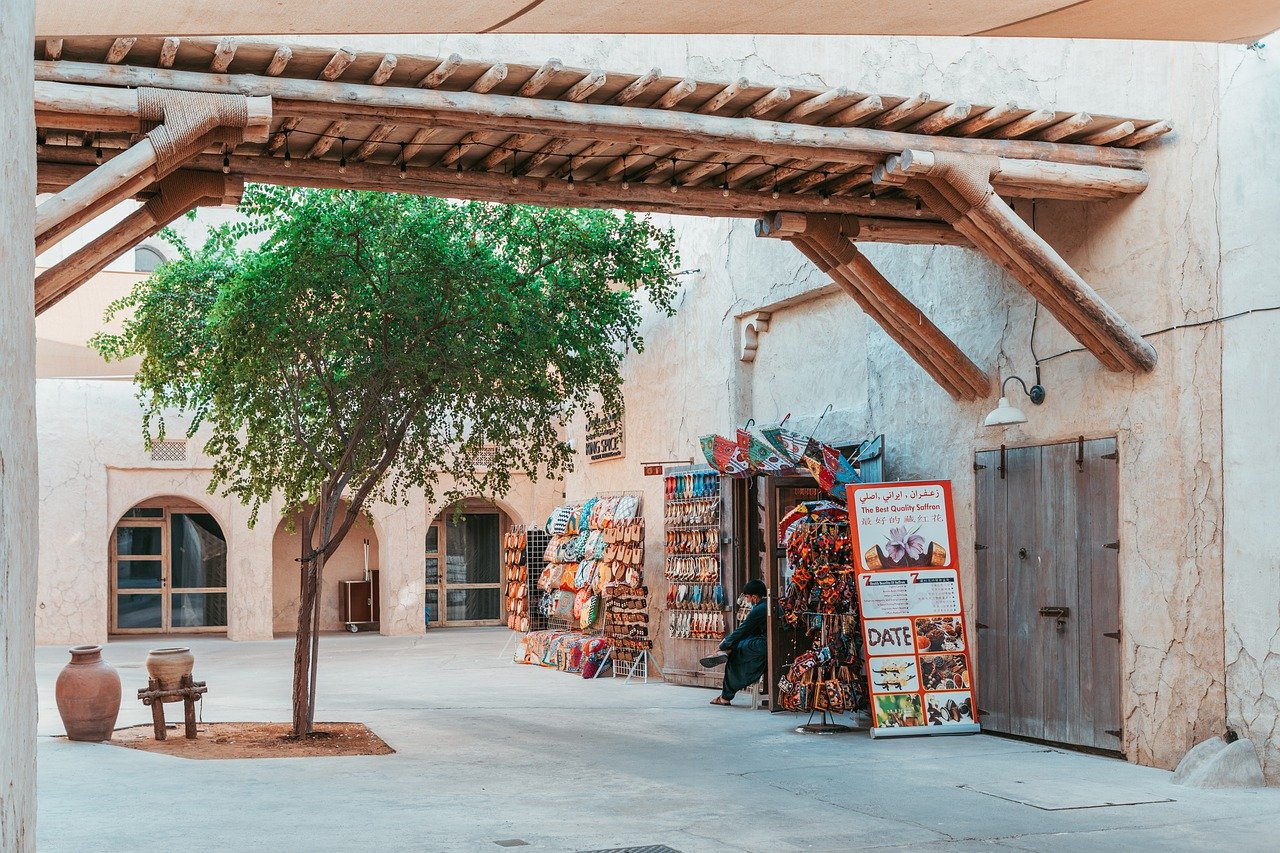200 Essential Islamic Words in Arabic Every Muslim Should Know
200 Essential Islamic Words in Arabic Every Muslim Should Know

Arabic is at the heart of Islam. It is the language of the Quran, daily prayers, and supplications (duas). For every Muslim, understanding and using Islamic words in Arabic is not merely a linguistic endeavor but a means of strengthening their faith and spiritually connecting with Allah.
In this article, discover 200 Islamic words in Arabic, their meanings, and their usage to enrich your religious practice.
Why Learn Islamic Words in Arabic?
1. Understanding the Quran and Sunnah
The Quran was revealed in Arabic, and the hadiths of the Prophet Muhammad (peace be upon him) also use this language. By mastering Islamic vocabulary, you can better understand the nuances of sacred texts.
2. Enhancing Your Worship
Prayers, supplications, and other acts of worship contain specific words. When these are well understood, they increase your concentration and sincerity during worship.
3. Strengthening Your Spiritual Identity
Learning these words connects you to a timeless tradition and helps you share your faith more effectively with others.
Book your free trial lesson
Don’t want to go through the translation anymore?
30 free minutes with your qualified Egyptian teacher.
Words Related to Allah and His Attributes
- الله (Allah) – God
- رب (Rabb) – Lord
- الرحمن (Ar-Rahman) – The Most Merciful
- الرحيم (Ar-Rahim) – The Most Compassionate
- الغفور (Al-Ghaffur) – The Great Forgiver
- السميع (As-Sami’) – The All-Hearing
- البصير (Al-Basir) – The All-Seeing
- الحكيم (Al-Hakim) – The Wise
- الوهاب (Al-Wahhab) – The Supreme Bestower
- الرزاق (Ar-Razzaq) – The Provider
- الصمد (As-Samad) – The Absolute
- الشافي (Ash-Shafi) – The Healer
- العفو (Al-Afuww) – The Pardoner
- العدل (Al-Adl) – The Just
- الجليل (Al-Jalil) – The Majestic
- القدير (Al-Qadir) – The Omnipotent
- الملك (Al-Malik) – The King
- النور (An-Nur) – The Light
- الغني (Al-Ghani) – The Self-Sufficient
- المتين (Al-Mateen) – The Strong
Words Related to the Quran
- قرآن (Qur’an) – The Holy Quran
- آية (Ayah) – Quranic verse
- سورة (Surah) – Chapter of the Quran
- تفسير (Tafsir) – Exegesis
- تجويد (Tajweed) – Rules of recitation
- ترتيل (Tarteel) – Careful recitation
- جزء (Juz’) – Section of the Quran
- مصحف (Mushaf) – Written text of the Quran
- إعجاز (I’jaz) – Miracle of the Quran
- بلاغة (Balagha) – Eloquence
- سبع المثاني (Sab’ul Mathani) – The seven oft-repeated verses (Al-Fatiha)
- نزل (Nazil) – Revelation
- وحى (Wahy) – Divine inspiration
- نور (Nur) – Spiritual light
- خشوع (Khushu’) – Humility in recitation
- قراء (Quraa) – Quran reciters
- تلاوة (Tilawah) – Pious recitation
- مكي (Makki) – Revealed in Mecca
- مدني (Madani) – Revealed in Medina
- سجد (Sajda) – Prostration mentioned in the Quran
Words Related to Prayer
- صلاة (Salat) – Prayer
- وضوء (Wudu’) – Ablution
- ركوع (Ruku’) – Bowing
- سجود (Sujud) – Prostration
- تحية (Tashahhud) – Testimony
- قيام (Qiyam) – Standing in prayer
- تكبير (Takbir) – Saying “Allahu Akbar”
- تحميد (Tahmid) – Saying “Alhamdulillah”
- تهليل (Tahlil) – Saying “La ilaha illallah”
- دعاء (Dua) – Supplication
- إمام (Imam) – One who leads the prayer
- أذان (Adhan) – Call to prayer
- إقامة (Iqama) – Second call before prayer begins
- خشوع (Khushu’) – Focus and humility
- سنة (Sunnah) – Voluntary prayers or acts
- نفل (Nafl) – Supererogatory prayers
- وتر (Witr) – Odd-numbered prayer
- ذكر (Dhikr) – Remembrance of Allah
- دعاء القنوت (Dua al-Qunut) – Supplication during prayer
- ختم (Khatm) – Completing the Quran recitation
Words Related to Ramadan and Fasting
- رمضان (Ramadan) – Month of fasting
- صيام (Sawm) – Fasting
- إفطار (Iftar) – Breaking the fast
- سحور (Suhoor) – Pre-dawn meal
- تراويح (Taraweeh) – Night prayers
- إعتكاف (Itikaf) – Spiritual retreat
- ليلة القدر (Laylat-ul-Qadr) – Night of Destiny
- فدية (Fidya) – Compensation for missed fasting
- كفارة (Kaffara) – Expiation for broken fast
- زكاة الفطر (Zakat al-Fitr) – Charity given at the end of Ramadan
- عيد الفطر (Eid al-Fitr) – Festival marking the end of Ramadan
- حلال (Halal) – Permissible
- حرام (Haram) – Forbidden
- نية (Niyya) – Intention
- رضا (Rida) – Contentment
- شكر (Shukr) – Gratitude
- صبر (Sabr) – Patience
- ذكر الله (Dhikr Allah) – Remembrance of Allah
- إخلاص (Ikhlas) – Sincerity
- بركة (Barakah) – Blessing
Words Related to Hajj and Umrah
- حج (Hajj) – Pilgrimage
- عمره (Umrah) – Lesser pilgrimage
- إحرام (Ihram) – Sacred state for pilgrimage
- طواف (Tawaf) – Circumambulation of the Kaaba
- سعي (Sa’i) – Walking between Safa and Marwa
- عرفات (Arafat) – Mount of Mercy
- مزدلفة (Muzdalifah) – Resting place during Hajj
- منى (Mina) – Site of symbolic stoning
- رجم (Ramy) – Symbolic stoning
- ذبح (Dhibh) – Ritual sacrifice
- هدى (Hady) – Sacrificial offering
- زمزم (Zamzam) – Blessed water
- تكبيرات (Takbirat) – Praises recited during Hajj
- عيد الأضحى (Eid al-Adha) – Festival of Sacrifice
- نحر (Nahr) – Animal sacrifice
- خشوع (Khushu’) – Spiritual focus
- طواف الوداع (Tawaf Al-Wada) – Farewell circumambulation
- ميقات (Meeqat) – Point of entry for Ihram
- صفا (Safa) – Hill of Sa’i
- مروة (Marwa) – Another hill of Sa’i
Words Related to Allah and His Attributes
- الحليم (Al-Halim) – The Gentle
- الرقيب (Ar-Raqib) – The Watchful
- المجيب (Al-Mujib) – The Answerer of Prayers
- الواسع (Al-Wasi’) – The All-Encompassing
- الشهيد (Ash-Shahid) – The Witness
- الحق (Al-Haqq) – The Truth
- الوكيل (Al-Wakil) – The Trustee
- الحميد (Al-Hamid) – The Praiseworthy
- الملك القدوس (Al-Malik Al-Quddus) – The King, The Most Holy
- المنان (Al-Mannan) – The Giver Without Limit
Words Related to the Quran
- إحكام (Ihkam) – Clear and decisive rulings in the Quran
- تشابه (Tashabuh) – Metaphorical or allegorical verses
- أمي (Ummi) – The illiterate Prophet
- ذكر (Dhikr) – Remembrance or mention of Allah
- كتاب (Kitab) – Sacred book
- علم (Ilm) – Knowledge mentioned in the Quran
- هدى (Huda) – Guidance
- نص (Nas) – Clear or explicit text
- فرقان (Furqan) – Criterion between right and wrong
- شفاء (Shifa) – Healing, attributed to the Quran
Words Related to Faith and Spirituality
- نور (Nur) – Spiritual light
- هداية (Hidaya) – Divine guidance
- إخلاص (Ikhlas) – Sincerity
- توكل (Tawakkul) – Trust in Allah
- توبة (Tawbah) – Repentance
- ذكر الله (Dhikr Allah) – Mention of Allah
- عبادة (Ibadah) – Worship
- رزق (Rizq) – Divine sustenance
- فتنة (Fitnah) – Trial or temptation
- شرك (Shirk) – Associating partners with Allah
- إيمان (Iman) – Faith
- تقوى (Taqwa) – Piety or fear of Allah
- يوم الحساب (Yawm al-Hisab) – Day of Judgment
- صراط المستقيم (As-Sirat Al-Mustaqim) – The straight path
- ميزان (Mizan) – Scale of deeds
- جنة الفردوس (Jannat al-Firdaws) – The highest level of Paradise
- رجاء (Raja) – Hope in Allah
- خوف (Khawf) – Fear of Allah
- ابتلاء (Ibtila’) – Trial
- رضوان (Ridhwan) – Allah’s satisfaction
Words Related to Daily Life in Islam
- سلام (Salam) – Peace, Islamic greeting
- بسم الله (Bismillah) – In the name of Allah
- الحمد لله (Alhamdulillah) – Praise be to Allah
- سبحان الله (Subhanallah) – Glory be to Allah
- الله أكبر (Allahu Akbar) – Allah is the Greatest
- ما شاء الله (Masha’Allah) – What Allah has willed
- إن شاء الله (Insha’Allah) – If Allah wills
- أستغفر الله (Astaghfirullah) – I seek Allah’s forgiveness
- جزاك الله خيرا (Jazakallahu Khairan) – May Allah reward you
- بارك الله فيك (Barakallahu Fik) – May Allah bless you
- أمانة (Amanah) – Trust or responsibility
- صدق (Sidq) – Truth
- حسنات (Hasanat) – Good deeds
- سيئات (Sayyi’at) – Bad deeds
- أخوة (Ukhuwa) – Brotherhood
- كرم (Karam) – Generosity
- حياء (Haya) – Modesty
- صدق (Sidq) – Honesty
- بر الوالدين (Bir al-Walidain) – Kindness to parents
- دعوة (Dawah) – Call to Islam
Words Related to Hajj and Umrah
- ميقات (Meeqat) – Starting point for Ihram
- صفا (Safa) – Hill for Sa’i
- مروة (Marwa) – Another hill for Sa’i
- زمزم (Zamzam) – Blessed water
- رجم (Ramy) – Stoning of the pillars
- هدى (Hady) – Sacrificial offering
- تكبيرات (Takbirat) – Praises to Allah during Hajj
- عيد الأضحى (Eid al-Adha) – Festival of Sacrifice
- طواف الوداع (Tawaf al-Wada) – Farewell circumambulation
- عرفات (Arafat) – Place of supplication
Words Related to Islamic Events
- الهجرة (Hijra) – Migration of the Prophet
- أسراء (Isra) – The Prophet’s night journey
- معراج (Mi’raj) – The Prophet’s ascension to the heavens
- بدر (Badr) – The first battle of Islam
- أحد (Uhud) – Battle of Uhud
- فتح مكة (Fath Makkah) – Conquest of Mecca
- بيعة (Bay’ah) – Oath of allegiance
- غزوة (Ghazwa) – Battle
- عاشوراء (Ashura) – 10th day of Muharram
- مولد (Mawlid) – Birth of the Prophet
Miscellaneous Islamic Terms
- حكمة (Hikmah) – Wisdom
- شريعة (Shari’a) – Islamic law
- فتوى (Fatwa) – Islamic legal ruling
- إجتهاد (Ijtihad) – Independent reasoning in jurisprudence
- أصول الفقه (Usul al-Fiqh) – Principles of jurisprudence
- حديث (Hadith) – Saying or act of the Prophet
- سنن (Sunan) – Prophetic traditions
- منافق (Munafiq) – Hypocrite
- كافر (Kafir) – Disbeliever
- شهيد (Shahid) – Martyr
- جنة (Jannah) – Paradise
- نار (Naar) – Hellfire
- إستغفار (Istighfar) – Seeking forgiveness
- عقيدة (Aqidah) – Creed or belief
- قدر (Qadar) – Destiny
- توحيد (Tawhid) – Oneness of Allah
- عبادة (Ibadah) – Worship
- إيمان (Iman) – Faith
- صراط (Sirat) – Bridge between Hell and Paradise
- ميزان (Mizan) – Scale of deeds
How to Learn These Words?
Enroll in Arabic Courses:
Join Al-Dirassa Institute’s online courses to learn these essential words and how to use them effectively.Daily Practice:
Use these terms regularly in your prayers, duas, and Quranic readings.Utilize Apps:
Apps like “Muslim Pro” can help you memorize and incorporate these words into your daily life.
Conclusion
Mastering these 200 Islamic words in Arabic will deepen your understanding of your religion, enhance your worship, and strengthen your faith. To take your learning further, enroll in Al-Dirassa Institute’s online courses and discover a practical, enriching learning method.
Join our free trial lesson courses to master Arabic and deepen your understanding of Islam!
Chosen and Trusted by Thousands of Satisfied Learners
Discover the experiences of our delighted clients who have thoroughly enjoyed utilizing this standout feature.
Alhamdulillah I‘m very pleased with the arabic and Qur’an lessons I receive from teacher Umm Tasneem and I‘m also content with the al-dirassa administration team who were very quick in answering any questions I had. In a month I progressed a lot and I cannot wait to continue my studies with al-dirassa. May Allah reward everyone at al-dirassa.
Verified review - view original
My Qur’an teacher is fantastic, she teaches me in a loving and kind way where I look forward to the lessons and learn so much. My Arabic teacher is equally as nice and has a lot of patience with me, she has great expertise in the field and I’ve progressed really quickly with her. Thank you Al-dirassa!
Verified review - view original







